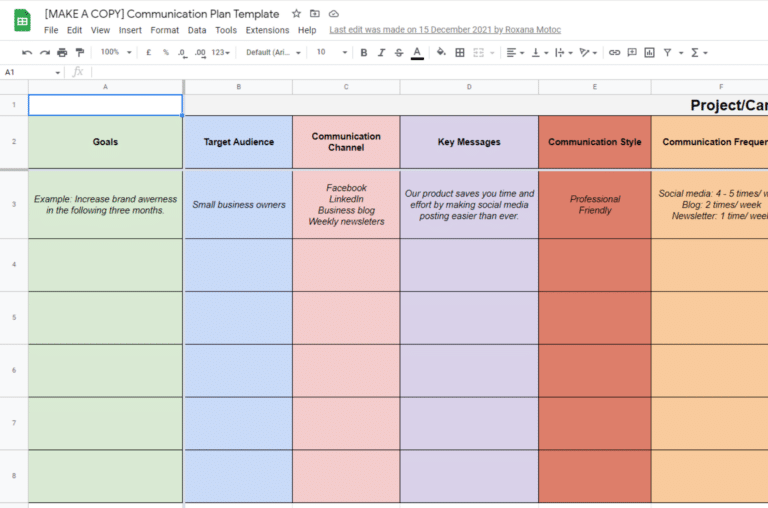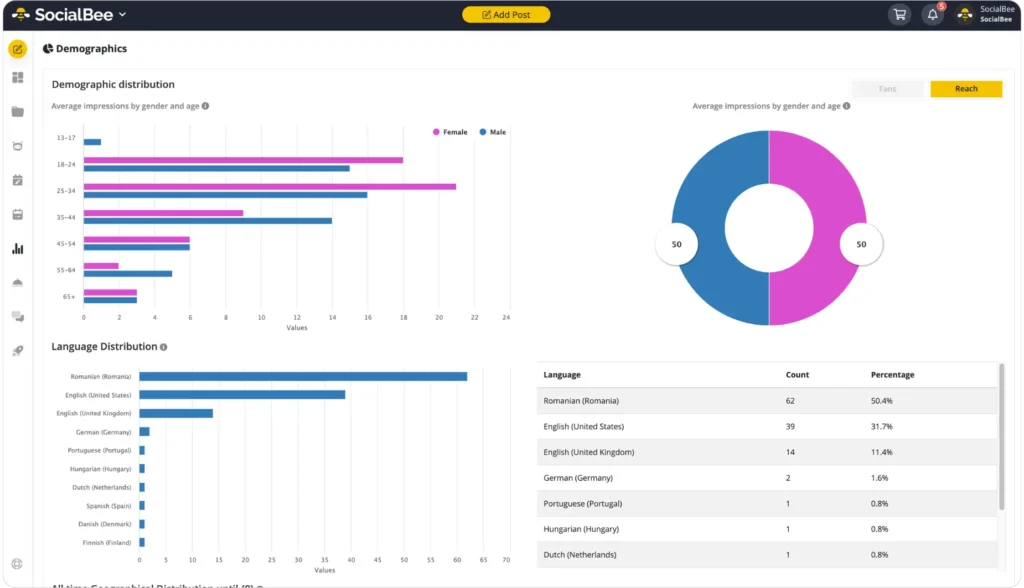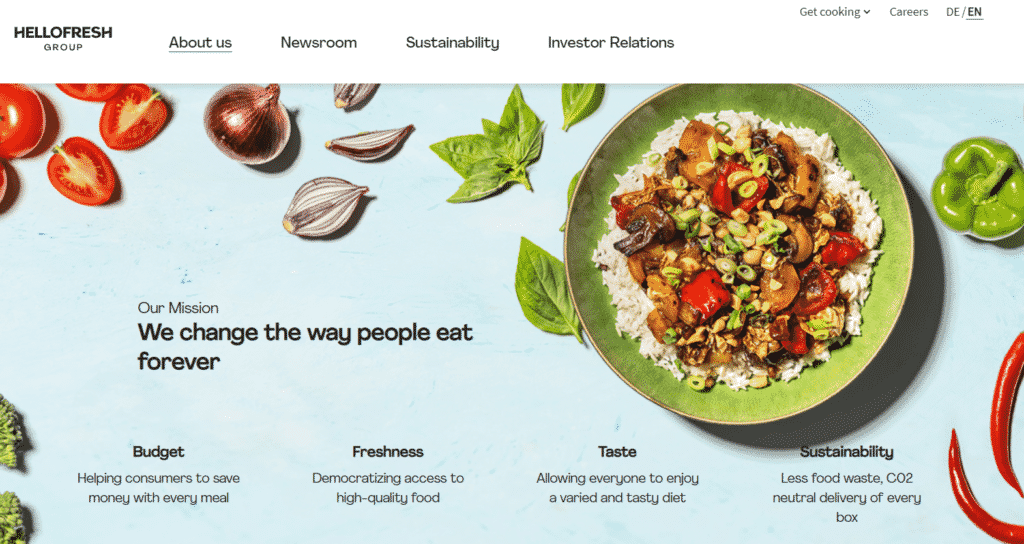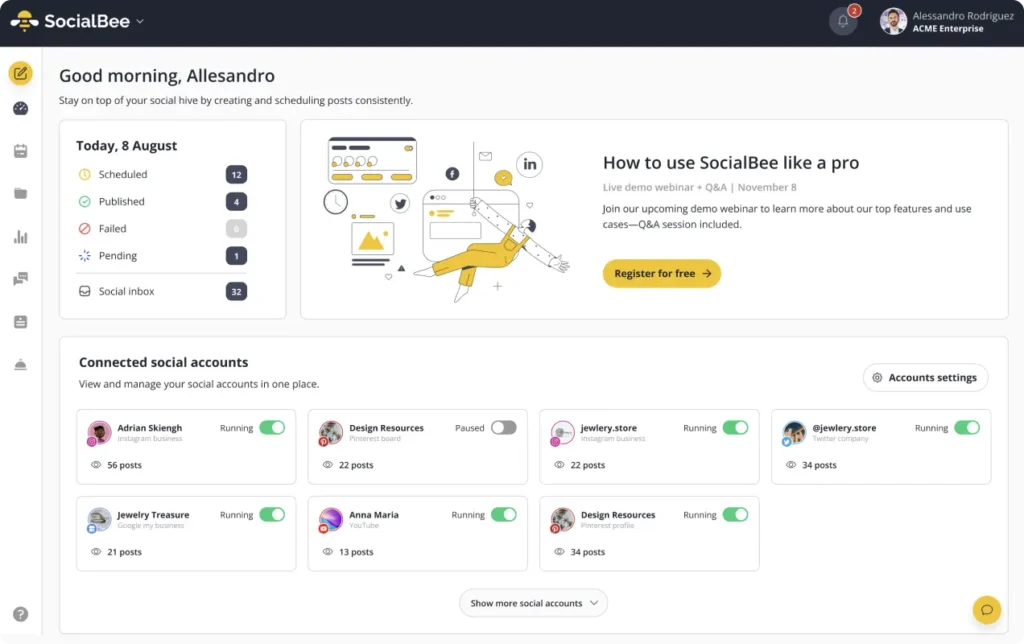


We know why you are here, and we are prepared with both a communications plan template and a guide that will help you every step of the way.
Communication plans are great strategies that will not only take your branding objectives to the next level , but will also help you manage PR crises without damaging your image.
In this material, we will walk you through the benefits of a communication plan template and we will show you what are the steps you need to take in order to build your very own communication strategy. Are you ready?
Free Communication Plan Template!Streamline your business communication planning with our easy-to-use template.

Communications plans are documents that outline the messages a business promotes, the audience meant for those messages, and the channels of communication.
A strategic communications plan is a way to organize all your company’s messages in one place, define your goals, and ensure you maintain a consistent and positive image.
Moreover, it works as a foundation that will help with managing certain crises your company might face, pitching new ideas to your stakeholders, creating an effective communication strategy for a product launch, and more.
Before we get into how to write a strategic communication plan, let’s see how such a document can benefit your business.
Here are the advantages of a communications strategy plan:
A well-written communication plan will help you improve the level of communication with both internal stakeholders and external audicences, as you will be able to convey your message through multiple channels.
By having a communication plan, you will also be able to set communication objectives for your company and assess progress.
Writing a clear communication plan will help you identify:
Also, this way, you will discover the unique characteristics of your intended audience. Consequently, you will understand their point of view better than ever before, and communicate with them more effectively.
An effective communication plan has a positive impact on your company’s image because it makes sure that every message you share with the public is correct, on-brand, and consistent on every communication platform.
Additionally, with the help of a communication plan, you can handle crises much more effectively. In fact, big brands have a designated crisis communication team ready to go in case of a social media controversy.
Having a crisis communication plan and planning ahead of time for emergency situations will allow you to manage the public perception better. Also, rushing your response in critical situations without clearly thinking it through will allow other mistakes to slip through and make the situation worse.
Now that you know what a communication plan is and how it can benefit your business, let’s get into the real reason why you are here — learning how to write an effective communications plan.
These are the steps you need to take to write a marketing communications plan:
Before you create your communication plan, you need to run a situational analysis of your current communication strategy.
Here is what you need to evaluate when it comes to your marketing communication strategy:
To gather all this relevant information, you can go to the analytics you have for each communication channel, send surveys to your customers, partners, and stakeholders, and hold in-person meetings with your project team.
In addition, you can perform a SWOT analysis and discover both internal and external advantages and disadvantages:
👍 Strengths – Define what you do well, your best resources, and the aspects that give you an advantage over your competitors.
👎 Weaknesses – Focus on the critics you receive from others, the resources you lack compared to your competitors, and the areas that need improvement.
📈 Opportunities – Identify the opportunities and market trends that will allow you to transform your strengths into growth opportunities.
❌ Threats – Discover the external factors that can prevent your business from growing.
Turn your business goals into specific communication goals. This way, your business needs will guide the way you think and write your communication goals. As a result, your chances of staying on track and enhancing your company’s performance will increase.
Your communication goals need to provide perspective and direction for you and your team. So, make sure you offer them all the details they might need.
When in doubt, respect the SMART goals structure:
Here is an example of a SMART communication goal:
“Improve customer satisfaction in the next 6 months by replying to every review, comment, email, and message within 24 hours.”
To measure success, you will have to check the reviews and feedback you receive as a result of your new initiative.
In order to write effective key messages, you first need to understand your target audiences . This doesn’t only include your customers but also your employees, partners, investors, government officials, media outlets, and more.
As a result of your research, you will be able to craft perfectly tailored messages while also discovering their preferred communication channel. Feel free to ask for feedback and suggestions that will improve their experience as well as your collaboration. Also, keep an eye on the way they communicate and try to match their approach.
When it comes to customers, you can generate multiple demographic details straight from your SocialBee dashboard. Based on the information you gather, you can create detailed buyer personas — fictional characters with the traits of different segments of your target market.

Get information about your audience from a single dashboard.
In this way, you structure all the audience data and make it easier for you and your team to remember.
Here is what a buyer persona should contain:
The goal is to reach the right people with customized messages that will resonate with them.
Not all businesses are built the same. And this is a good thing.
Your unique selling proposition is very important for your communication plan, especially when it comes to your promotional content. Why? Because you have to rely on that unique quality to differentiate your business from the competition and give your customers a reason to purchase from you.
To develop your USP, you first need to answer the following questions:
Furthermore, while your USP works as a way to make your brand stand out from the crowd, your mission statement provides meaning and purpose to your company.
A great mission statement reflects your customers’ values and provides an additional reason to invest in your products.

Let’s say you sell sweets. Your USP is that you don’t use sugar in your products. So, in your mission statement, you could state that through your business, you aim to provide healthy and delicious dessert alternatives and improve your customers’ lifestyles without compromising the taste of your sweets.
It’s not only essential to know how to communicate with your audience, but also to discover the channel that you should use to reach them. Moreover, for better results, you need to keep your communication separate.
For instance, with your stakeholders, you can plan online or in-person meetings and provide project reports regularly. Whereas, with media outlets, you can move your communication to email. All you need is to have the contact information of several relevant journalists and nurture your media relationships on this channel.
The same goes for the rest of your audience segments. The more you customize your communication to fit your audience’s needs, the more success you will have.
However, when it comes to your customers, you have more options. You can get creative with your communication when promoting your business.
These are the main communication channels you can use to connect with your customers:
Your communication plan wouldn’t be complete without including your content marketing strategy.
In fact, did you know that 70% of customers would rather learn about a business from an article or blog post than from advertisements? So, it’s safe to assume that content marketing is quite a big deal.
This marketing strategy is used to attract, engage, and maintain customers by creating and distributing relevant content (articles, videos, social media posts).
Apart from this, content marketing helps businesses establish themselves as credible and authoritative sources of information, build brand awareness and stay top-of-mind.
So, make sure you include your social media platforms, your blog, and other content creation platforms (Youtube, Udemy, etc.) and give details about your communication strategy on all of them.
Don’t forget that with SocialBee you can create, edit, schedule, and share content on all your social media platforms from one user-friendly dashboard.

Besides, SocialBee can generate automatic social media posts whenever you publish a new article, making the most out of your content marketing strategy.